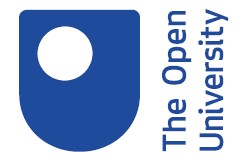The University of Hertfordshire’s Dr Steve Partridge explores how creativity, culture, and cross-sector collaboration will define the future of digital talent – and why investing in creative capability is vital for national growth.
Following our recent roundtable discussions on the creative industries and the skills and talent agenda, I’ve been reflecting on how quickly our relationship with culture and digital media continues to evolve. The conversations reinforced both the scale of opportunity ahead and the urgency of ensuring that our regional and national skills strategies are equipped to respond.
How we engage with culture and digital media is evolving at such dizzying pace that confidently pinpointing strategic direction has become increasingly complex. That old TV in the corner of the living room has long since lost its familial glow, replaced by an endless stream of highly personalised, data-driven content – a shift that speaks to profound changes in how we consume, create and connect.
So, what forms of content will remain relevant ten years from now?
The continuing dominance of gaming and interactive media points towards interactivity as a defining feature of future cultural engagement. At the University of Hertfordshire, we explore this frontier through our Digital Arts, Animation and Games programmes, as well as through initiatives such as the Propeller project. The expanding marketplace for immersive experiences reinforces the critical role of game-engine driven content and Extended Reality innovation – now evolving at a breathtaking pace thanks to the integration of AI-enhanced workflows.
These developments highlight a wider challenge for the UK’s creative industries: ensuring that our skills and talent pipelines keep pace with the technologies reshaping creative practice. Employers are seeking graduates who can combine technical fluency with creative problem-solving, digital literacy with emotional intelligence, and artistic vision with commercial awareness. As educators and regional leaders, we have a shared responsibility to nurture this next generation of adaptable, creative thinkers who will define the future of the sector.
Yet the importance of art and culture extends well beyond its economic footprint.
Despite years of underinvestment in arts education, there is growing, research-informed recognition of the vital role that creativity plays in wellbeing and social cohesion. As we continue to navigate post-Covid challenges around mental health and community resilience, these connections are increasingly evident – and align closely with our postgraduate research in art therapy and our forthcoming Medical School, launching in 2026.
As the value of arts and cultural interventions becomes more rigorously measured through data, it’s essential that this understanding informs future skills policy – recognising that creativity is not a soft skill, but a strategic one. The UK’s future workforce will rely on it as automation, AI and new technologies redefine what it means to be employable.
Creativity is a superpower that drives innovation across every sector, from engineering to medicine. As we shape the emerging Skills and Talent Strategy for the Oxford to Cambridge Growth Corridor, nurturing creative capability across disciplines and sectors must be at the heart of our ambition.
We’ll be exploring these themes in depth at our forthcoming online Town Hall on Skills and Talent, bringing together educators, employers, and regional partners to discuss how we can strengthen the creative pipeline and equip the workforce for a digital, dynamic future.

🗓️ Friday 17 October 2025
🕧 12.30–13.30
🌐 Microsoft Teams
Register here:
Join the conversation. Shape the strategy. Help us build the skills and talent base that will power the UK’s creative industries for decades to come.








